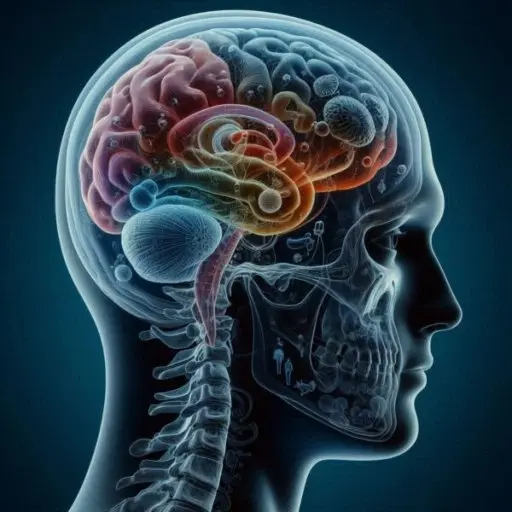Behaviour Change: Overcome unhelpful habits and behaviours.
Whether you want to stop drinking, smoking, want to be less anxious, want to eat healthier, exercise more, or change how you think, yes that’s right, we can change long held patterns of thinking with some insight and basic neuroscience information.
We all have behaviours we’d like to unlearn (or change) yet often our entrenched habits get in the way of healthier behaviour. As an online counsellor and life coach, I find myself giving advice to people about changing habits on a daily basis.
My clients usually succeed in making their desired changes and I have found that when they follow the behaviour change model below, then the changes are not short lived, but become a permanent and lasting change.
The psychology behind behaviour change can sound complex and many of the writings on the subject can add to the complexity unnecessarily.
Prochaska and DiClemente shared an easy to understand model of behaviour change, their ‘Stages of Change Model’. I also have other tools, where I will work with you through the stages of learning how to control and be in control of your Thoughts, Feelings and Behaviours. Message me for further details on how we can do this together.

The Five Stages of Behaviour Change
Precontemplation: In the pre contemplation stage we may have not yet considered change or have not looked seriously at changing a particular behaviour.
Quite often the seeds of change are planted by friends or family, or maybe by the press and social media, messages which tell us how we can better improve our lives are everywhere nowadays.
We often expel these messages, particularly if we feel we are being preached to, however some of the messaged may in fact be in tune with our own desires.
Contemplation: In the contemplation stage we may have begun to actively consider our want/need to change a particular behaviour, to seriously consider the idea. This stage may differ in duration, anything from a fleeting idea to a lifetime of contemplating.
Moving from contemplation to the next action stage is really about ‘one’s belief in the idea’. There may be many dismissals of the want/need to change a particular behaviour or habit, there may be lots of internal wrangling with excuses and very valid reasons why the status quo should not be changed, however, remembering and focussing on our original desire may get us past these doubts.
Determination: In this stage, we actually begin preparing ourselves mentally and often physically for action. The drinker may pour out all their alcohol, the overweight may join a gym. We pick ‘change’ days. We schedule ‘action’ days.
This focussing of determination is the culmination of the decision and the actual belief that change is for the better, it fires up our engine which will drive us to our goal. Motivation in enough vigour and a deeply held belief will make any behaviour change doable.
Action: Here we go. We walk to work or take a few extra minutes exercise with the intent of doing it regularly.
We stop drinking, smoking gambling or whatever it was which we felt was not adding value to our lives.
Behaviour change is upon us, we have done it, started!
Maintenance: Continuation, new habit forming, that’s what is required now. abstinence from drinking. Continuing to eat breakfast, walk that little bit more every day.
Continuing to control your healthier choices. Starting a new behaviour usually seems like the hardest part of the process of change, and it can be, but we often fail to plan for the most important stage of ‘maintenance’.
Undoubtably, maintaining a ‘new behaviour’ is the most challenging part of any behaviour change.
One of the reasons we fail at maintaining a change is because we believe the same strategies we used to initiate the change will be as effective in helping us continue the change, however, sometimes they aren’t.
We are attempting to change deep rooted beliefs and they are entrenched into our psyche, we must redefine our belief and our understanding for a significant time before we can successfully reframe our thinking from the old way. If we lose motivation or feel low or are knocked by external comments and negativity, our commitment to the hard work may become unsteady. and we may experience a blip or return to the old way, remember, its not the end of the world to have a blip, its demonstration of the power of the old entrenched ways, we can recover from a blip.
When you’re feeling good again, get back on track, do the things which worked before, they will work again.
The key to maintaining new behaviours is to believe that you will succeed and be happy that you are taking control of your life and doing what you believe is best for you.
Online Humanistic Counselling with Me
As with face-to-face Humanistic counselling, Humanistic counselling online maintains that the relationship is the major factor in the therapeutic experience. The fact that the counselling is online may in many ways be a benefit, here are some of them:
- Writing is very therapeutic, and you can choose to save your session and read it back at your convenience.
- Online counselling is easily accessible from your home or workplace, or anywhere with an internet connection, even from your mobile telephone.
- Confidential as only your counsellor will ever know you are having counselling.
I’m Paul Parkin – A therapist and life coach. This is why you should work with me:
 It is important that you feel comfortable with your counsellor, life coach or therapist, and that you feel able to develop an open, honest and trusting working relationship with them. Without this, no talking treatment or counselling is likely to be successful.
It is important that you feel comfortable with your counsellor, life coach or therapist, and that you feel able to develop an open, honest and trusting working relationship with them. Without this, no talking treatment or counselling is likely to be successful.
Online counselling and life coaching with me would make you feel heard and equip you with knowledge and tools to help you change any destructive behaviour to a new beneficial and healthier one.
What some of my recent clients have said about our work together.
‘Paul introduced a thought management tool to me. A thought reframing tool. It helps me recognise my own negative thoughts clearly, and then I reframe them into a positive one.
With the help of this tool, my cognitive behavior just changed, it has changed my feelings to positive ones and then my behaviors start to change for the better.
If anyone has been feeling bad and unhappy without knowing why, you might have negative thoughts toward yourself and your life. I highly recommend Paul and his tried and tested tools to help live a better and happier life!‘
Patrick. Thailand.
May 2021.
‘I found Paul’s counselling services online and it was very quick and easy to set up my first call with him, the price was very competitive too.
I came to Paul with one big issue that was destroying my relationship and nearly ended it, Paul helped me in various ways through behavioural therapy and he taught me techniques I couldn’t have imagined that would help me. Paul has lifted a weight off my shoulder and made my relationship so much better.
Without a doubt I would recommend Paul, he is fantastic and well worth the cost. Thank you, Paul, once again for your brilliant services!‘
Andy. UK.
August 2018.
